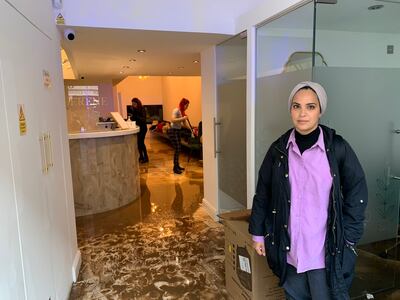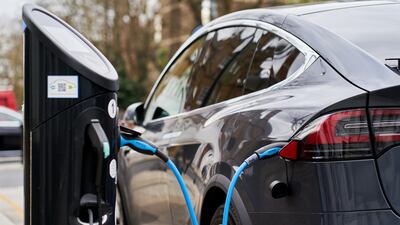London Mayor Sadiq Khan on Thursday said he believed the future of transport in the capital lies in smart road user charging and that good progress was being towards this aim.
Mr Khan first set out plans for an "electric revolution" in the capital in 2019 when he called for a massive expansion of its electric charging network.
"[Today] we have more rapid charging points than any city in western Europe," he told delegates at the Bloomberg Sustainable Business event as he described improving air quality in London a matter of "social justice".
"We're approaching 500 now and you can get an app and see where the rapid charging points are," he said.
Convenience is frequently cited as one of the major barriers to faster electric vehicle take-up and rapid chargers reduce the time it takes to power an EV from about 12 hours to 10 to 15 minutes.
The mayor still sees a role for normal charging points and said London's network of 10,000 represented a third of the UK's total number.
However, he acknowledged that coverage was still patchy.
"We've noticed that if you do a sort of bird's eye view of London, not all of London is well covered," he said.
"Outside London is not as well covered as central London. There are some corridors that are more [covered] than others. So we're trying to improve that."
Mr Khan revealed he had instituted an EV infrastructure task force and was working with utility companies "to make sure we have all of London covered but also making sure that the energy used is renewable".
Just as important as sustainability at the point of supply is cleanliness at the point of use, he suggested.
Short-term inconvenience a price worth paying for cleaner air
This is the guiding principle behind London's much criticised no-car zones, which some Londoners believe have made day-to-day transport around the city much more inconvenient.
Mr Khan was in no mood to indulge their concerns.
"It's an issue of social justice actually," he said.
"It may be inconvenient that you are unable to take the rat run [process of motorists using residential side streets to get to a destination] you used to take.
"But for those residents on those roads it is a huge convenience because their children are less likely to suffer from asthma or bronchitis or all sorts of health issues."
Mr Khan acknowledged that adapting could be inconvenient in the short term but highlighted the cycling scheme in the London borough of Waltham Forest, which initially faced stiff opposition from parents on the school run.
"Now those same parents are walking, cycling, scootering with their kids to school ... improving air quality," he said.
There is an economic gain, too, with "businesses in those streets benefiting from the high footfall".
Not a flash in the pan
Mr Khan recounted the damage caused to Londoners' homes by flash flooding to reinforce to delegates the adverse effects of climate change on the capital.
"We saw lots of flash floods in the city because of the hard surface and so forth," he said.
"With stations closing down, we had basements being flooded and we had Londoners' lives being disrupted."
Taking a silver lining from the cloud, Mr Khan said it made the issue of rising sea and river levels a "now issue".

He said no action were taken, in the next 10 years a quarter of London's underground stations, hundreds of thousands of homes and many hospitals and schools would be flooded, often in poorer areas of the capital.
Action is being taken, though.
"We're working with the water companies, working with local authorities, we've now got more sustainable urban drainage," said Mr Khan.
"We're trying to turn concrete jungles green."

